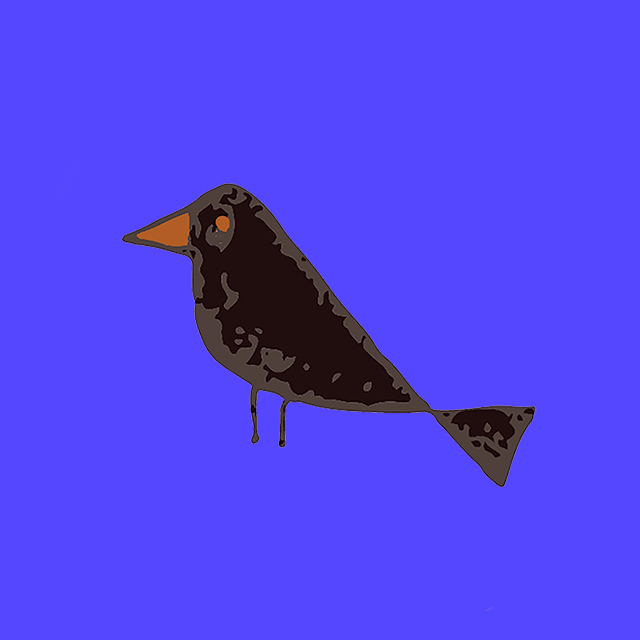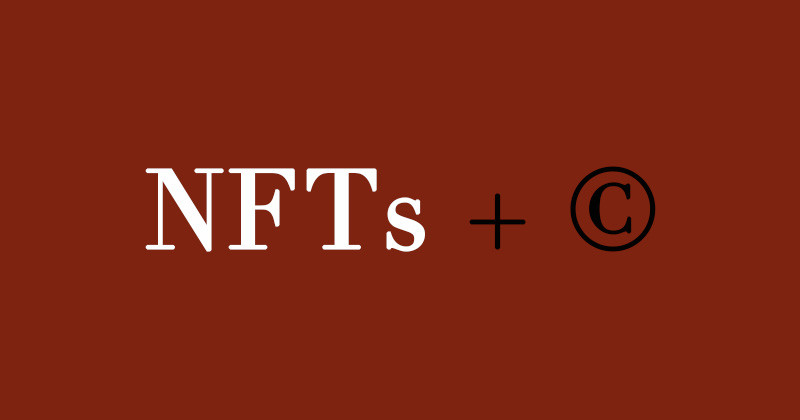
Mar 28•5 min read
NFTs and copyrights, an elephant in the room?

[Listen or read the podcast-post IN SPANISH]
NFT… the word of the town, an acronym that stands for Non Fungible Token. But thery are much more, NFTs are the preview of what the Internet of Value can offer us, even more so for artists, and that is why it is important and necessary to understand for what they can be useful.
To begin with, we need to understand that NFTs are simply authentication certificates that allow any artists to sell his/her work with a digital proof stating it is truly an original art work file. Therefore, with our digital files on sale as NFTs we can identify our work and authenticate it, as well as control where those files end up, and charge directly for them. Everything is registered immutably on blockchain, and the NFT has a unique value to the buyer, which is a huge difference compared to what we have seen in the past few years. Logically, NFTs have gathered great enthusiasm from collectors, but as artists-authors who are conscious of our rights and want to self-manage them, a question might pop in our heads…
What is an artist giving away when they sell an NFT?
When an artist creates a work of art (be it visual, musical, etc…), in their computer they can keep their first original copy. As intellectual proprietor of that work, of that digital file, they have various different rights for which they can get paid when they upload thier art works on the web.
When an author wants to upload on the web an art work in order to show or display it, he/she can now do it in NFTs platforms where, on top of that, he/she can sell it to clients, fans, collectors, etc… That way the work enters in a virtual market of NFTs.
However, is the buyer of that authenticity certified digital file buying the Intellectual Property of it as well? Legally, no. As we saw in a previous episode, the Intellectual Property always belongs to authors, who own a series of moral and patrimonial rights corresponding to them just for that fact. Only authors can decide about their rights, and their consent to license their use must be clear and explicit.
Buyers of NFTs can show and display their unique digital files, however if it is not specified anywhere, they have no other rights for using of the work…
What happens with copyrights?
That is the elephant in the room. We authors that are going to upload our files on the web as NFTs need to know what rights we are giving away, and under what conditions. If we want to benefit from this upcoming Internet of Value, it is very important to be conscientious and take control of our rights. We cannot keep looking away.
Although very few mention copyrights when they talk about NFTs, the people who are more interested in their development, success, and general adoption are indeed taking care of it.
There are specialized attorneys that are warning about the need of licenses. The NFT marketplaces that want to prosper, and thus avoid legal problems and issues, make it clear that what they buyer gets in only that right of display, but not the other rights such as reproduction or distribution. Some NFTs platform like Terra Virtua, have a great understanding in licencing, and are pioneers in this matter, considering licenses are crucial for the true adoption of NFTs. The case of Terra Virtua is especially meaningful, as this platform has agreements about licences with companies such as Paramount Pictures and Legendary Entertainment since 2019. I also cannot forget to mention that the NBA has already begun its own virtual player cards as NFTs with a very clearly defined license.
Considering all this, authors and artists who want to self-manage their work on the Internet of Value, and benefit entirely of their rights in the upcoming web3, need to choose the licenses that work best for them, at their greatest possible convenience.
Maybe it still seems way too far into the future that artists will be able to choose or negotiate their licenses on the web, but the truth remains that blockchain technology already allows that. So it is safe to assume that we can already imagine, and start designing licenses that adapt to the needs of artists/authors, including exclusive licences, for commissioned or on-demand works, and many other use cases that the NFTs can bring and will be able to open in the future.
I am sure we are going to talk a lot about NFTs in the upcoming months, but in the next episode I would like to come back to the self-management question, mainly to see what a license actually is, and know which are the things we must be more aware of.
As for today, it is essential to acknowledge the potential of NFTs, be aware of them, and maybe explore some platforms with due caution.
The possibility of selling digital files of our work as NFTs, with the value of signed and authenticated works, is clearly opening the door to a whole world of possibilities. In order for these possibilities to be real opportunities for authors we must give feedback, participate, and get involved…
In the upcoming Internet of Value, artists have a lot to win, but only if they take part in its building and defend their rights.
Georgina Mauriño,
Author and founder of Smartists on Stacks, building a user owned Internet.
